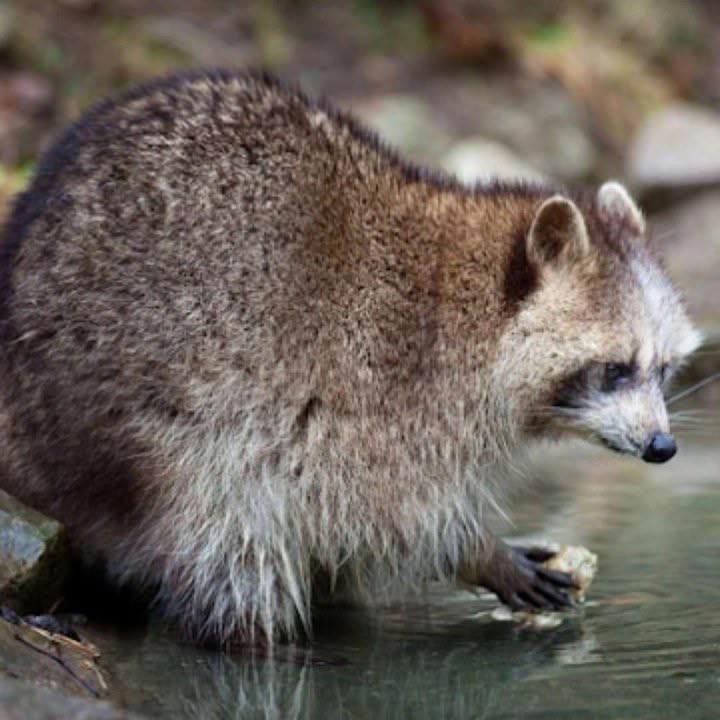Did you know: why it looks like Raccoons wash their food?
I don't care. They still my spirit animal.
Raccoons don't wash food for cleanliness but to enhance their sensitive paws' sense of touch, helping them to better perceive and identify objects, their texture, and safety before eating. They possess a hyper-sensitive paw with many nerve endings, and moistening this paw softens a natural protective layer, increasing nerve responsiveness and allowing for more precise information gathering on their food. This "dousing" behavior, rather than cleaning, helps them to distinguish edible from non-edible items and locate food in their environment.
Why Raccoons "Wash" Food
Enhanced Tactile Sensitivity:
Raccoons' front paws are packed with a huge number of nerve endings, but a protective layer can form over time. When they dip their paws in water, this layer softens, and their nerves become more responsive, similar to how light helps humans see better.
Better Information Gathering:
This increased sensitivity allows raccoons to feel the texture, shape, and temperature of their food with more accuracy. This helps them to identify what is edible and safe to consume.
Locating and Identifying Food:
By "feeling" their food, raccoons can memorize its characteristics. This helps them to recognize and locate similar foods more easily in the future.
Not About Cleanliness
The common term "washing" is a misnomer, as the primary motivation isn't cleanliness.
The scientific name for the northern raccoon, Procyon lotor, translates to "washer," further reinforcing the belief, but this behavior is more about experiencing food than cleaning it.
The action is more accurately described as "dousing".
Where This Behavior is Seen
This behavior is most prominent in wild raccoons that forage along water sources for prey like crayfish, snails, and worms.
In captivity, raccoons may "wash" or douse their food as a substitute for their natural foraging behavior in the wild.
Raccoons don't wash food for cleanliness but to enhance their sensitive paws' sense of touch, helping them to better perceive and identify objects, their texture, and safety before eating. They possess a hyper-sensitive paw with many nerve endings, and moistening this paw softens a natural protective layer, increasing nerve responsiveness and allowing for more precise information gathering on their food. This "dousing" behavior, rather than cleaning, helps them to distinguish edible from non-edible items and locate food in their environment.
Why Raccoons "Wash" Food
Enhanced Tactile Sensitivity:
Raccoons' front paws are packed with a huge number of nerve endings, but a protective layer can form over time. When they dip their paws in water, this layer softens, and their nerves become more responsive, similar to how light helps humans see better.
Better Information Gathering:
This increased sensitivity allows raccoons to feel the texture, shape, and temperature of their food with more accuracy. This helps them to identify what is edible and safe to consume.
Locating and Identifying Food:
By "feeling" their food, raccoons can memorize its characteristics. This helps them to recognize and locate similar foods more easily in the future.
Not About Cleanliness
The common term "washing" is a misnomer, as the primary motivation isn't cleanliness.
The scientific name for the northern raccoon, Procyon lotor, translates to "washer," further reinforcing the belief, but this behavior is more about experiencing food than cleaning it.
The action is more accurately described as "dousing".
Where This Behavior is Seen
This behavior is most prominent in wild raccoons that forage along water sources for prey like crayfish, snails, and worms.
In captivity, raccoons may "wash" or douse their food as a substitute for their natural foraging behavior in the wild.








